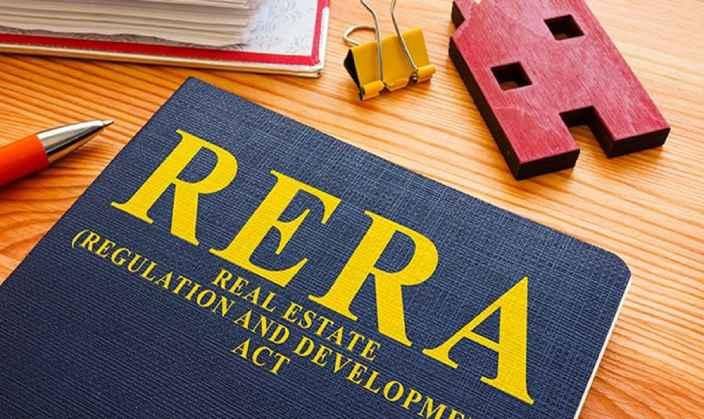


Table of Contents
- Introduction
- Understanding RERA's Core Focus: New Projects
- When RERA Indirectly Affects Resale Properties
- What RERA Doesn't Cover in Resale Transactions
- Due Diligence is Still Key for Resale Buyers
- The Future of RERA and Resale Properties
- Conclusion
- Faq's
Introduction
The Real Estate (Regulation and Development) Act, or RERA, was enacted in 2016 to bring transparency, accountability, and efficiency to the real estate sector. It primarily focuses on protecting the interests of homebuyers and regulating real estate developers. But what happens when you're not buying a brand-new property? Does RERA extend its protective umbrella to resale properties? The answer is nuanced, and understanding it is crucial for anyone involved in a resale transaction. Let's delve into the details.

Understanding RERA's Core Focus: New Projects
At its core, RERA is designed to regulate new real estate projects. Its primary objectives include:
- Ensuring timely completion of projects.
- Protecting buyers from fraudulent practices by developers.
- Establishing a regulatory authority to resolve disputes.
- Mandating developers to register their projects with RERA.
- Promoting transparency in project details and construction progress.
This focus means that RERA's direct applicability to resale properties is limited. RERA doesn't directly govern the transfer of ownership between two individual sellers and buyers.
When RERA Indirectly Affects Resale Properties
While RERA doesn't directly regulate the sale between individuals, it does have an indirect impact on resale properties in several ways:
- Project Registration and Compliance: If the original project in which the resale property is located was registered under RERA, certain benefits indirectly extend to the resale buyer. The buyer can access information about the project's approved plans, layout, amenities, and the developer's compliance status on the RERA website. This information is invaluable for making an informed decision.
- Addressing Ongoing Issues: If the project faces ongoing issues related to construction quality, amenities, or unresolved disputes with the developer, the resale buyer can leverage the original RERA registration to understand the status of these issues. They can even potentially benefit from resolutions sought by the original allottees through the RERA authority.
- Title Clarity: RERA mandates developers to provide clear and marketable titles for the properties they sell. This reduces the risk of title disputes arising later, which can indirectly benefit subsequent buyers in the resale market.
What RERA Doesn't Cover in Resale Transactions
It's essential to understand the limitations of RERA in the context of resale:
- Price Regulation: RERA does not regulate the resale price of properties. The price is determined by market forces and negotiation between the buyer and seller.
- Disputes Between Buyer and Seller: RERA typically doesn't intervene in disputes arising directly between the buyer and seller of a resale property, unless those disputes are related to the underlying RERA-registered project.
- Property Condition: RERA doesn't guarantee the physical condition of a resale property. It's the buyer's responsibility to conduct thorough inspections and due diligence.
Due Diligence is Still Key for Resale Buyers
Since RERA's direct protection is limited, buyers of resale properties must exercise extra caution and conduct thorough due diligence:
- Verify Title: Engage a lawyer to conduct a title search and verify the seller's ownership rights and any encumbrances on the property.
- Inspect the Property: Conduct a thorough physical inspection of the property to assess its condition and identify any potential issues.
- Review Original Project Documents: Obtain copies of the original sale agreement, allotment letter, and any other relevant documents from the seller to understand the project's history and the developer's obligations.
- Check RERA Registration: Verify if the original project was registered under RERA and review the project details on the RERA website.
- Consult with Professionals: Seek advice from real estate agents, lawyers, and property valuation experts to make an informed decision.
The Future of RERA and Resale Properties
While RERA currently has limited direct applicability to resale properties, there is ongoing discussion and potential for future amendments to expand its scope. This could involve incorporating provisions to address issues specific to resale transactions, such as property condition disclosures or standardized resale agreements.
Conclusion
RERA, in its current form, doesn't directly regulate the sale of resale properties between individual buyers and sellers. However, the act's underlying principles of transparency and accountability in the real estate sector indirectly benefit resale buyers by ensuring access to project information and addressing ongoing issues with the original development. Due diligence remains paramount for buyers entering the resale market.
explore further
Latest from Home Buying Tips
More from Recommendations
Resources
Dwello, for every home buyer, is a way to go from 'I feel' to 'I know', at no extra cost.


